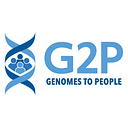Unlocking the Human Genetics of COVID
In an unprecedented international effort, researchers and clinicians tackle the genomics of COVID-19 risk.
by Robert C. Green
Why does COVID-19 affect some people differently than others? Are some people more likely to contract it than others, even if they’ve had the same exposure? After contracting COVID, why do some apparently healthy people have an unexpectedly severe response?
For anyone involved in genomic medicine, the next question is obvious: How much of this is genetic?
Answering that question is more difficult than it may seem. The SARS-CoV-2 coronavirus has more than 12,700 identified mutations, at least five strains, and somewhere around 4,000 variants at the moment I’m writing this; if you are reading this later in 2021, those numbers may be considerably higher. COVID-19, the disease resulting from the coronavirus — as we have all heard many times by now — is also complex, and the reasons why some people are more severely affected than others are not well understood.
Early in the pandemic, when we understood even less about the disease, researchers around the world were asking these same questions. Finding genetic risk factors for COVID susceptibility could go a long way toward understanding and fighting the disease globally — but that kind of research requires data, with a large and diverse sample of individuals who have been differently affected by the disease; it requires time for gathering the data, for genome sequencing, for analyzing the results, and for coordinating everyone’s efforts; and it requires people with the expertise to do all of this. In normal times, it would be an undertaking that might stretch for years and still leave many questions unanswered.
These are not normal times. As researchers began to tackle identifying the genetic components of COVID, a remarkable consortium came together — the COVID-19 Host Genetics Initiative — which linked several thousand researchers to share data and work together to identify human genetic variations that influence responses to the coronavirus. It has been an enormous undertaking that relied upon cooperation not only across disciplines, but across institutions, and across the world. The scale, and the way we have all come together, not through a grant or some other funding source, but through a genuine effort to meet the urgency of the situation, is like nothing I’ve seen before in my career as a clinical researcher.
Our Genomes2People (G2P) research program contributed to the consortium in a small way by helping to organize some of the data from our Mass General Brigham biobank cohort, which was used in combination with additional data sources to run a large genome-wide association study (GWAS) analysis that was able to identify several genetic variants that have robust associations with COVID-19 severity. This information, published in the journal Nature in June 2021, could lead to new insights about the biology of the virus and to future treatments, both during the current pandemic and for many years to come as we adapt to a world where the coronavirus continues to circulate.
How are people going to find out if they have these variants in the first place? Will they get their genome sequenced just to learn their COVID risks? Probably not yet. But many people have already received genome sequencing for clinical reasons or as research participants, and when potentially important genetic risk factors unrelated to the primary purpose of testing are found in the process, we have standards for returning these secondary findings to patients, recommended by The American College of Medical Genetics and Genomics (ACMG). And when we make new discoveries about genetic variants, we should have mechanisms for updating genome sequencing reports that people received before those discoveries.
Which brings us back to COVID. Last year, two colleagues and I proposed that, beyond the ACMG recommendations, biobanks should also notify patients with genetic conditions likely to increase their COVID-19 risks. If the patient were to contract COVID, their doctors could use this information to avoid or mitigate complications — and, potentially, save the patient’s life. This isn’t just a few genes; we identified more than 70 genetic conditions that could impact a COVID patient’s care. Some of these involve reactions to the medicines commonly used for COVID treatment, and many involve conditions that may be exacerbated by severe illness — and which are potentially reversible, especially if clinicians know what to expect.
“Knowing what to expect” sounds almost fantastical after the year we’ve had, but it’s what genomic medicine does best. COVID-19 isn’t going away anytime soon. The more we know — and the sooner we know it — the better we’ll be able to handle it.
Robert C. Green, M.D., M.P.H., is a medical geneticist and physician-scientist who directs the G2P Research Program in translational genomics and health outcomes in the Division of Genetics at Brigham and Women’s Hospital, the Broad Institute and Harvard Medical School. Follow him on Twitter at @RobertCGreen.
